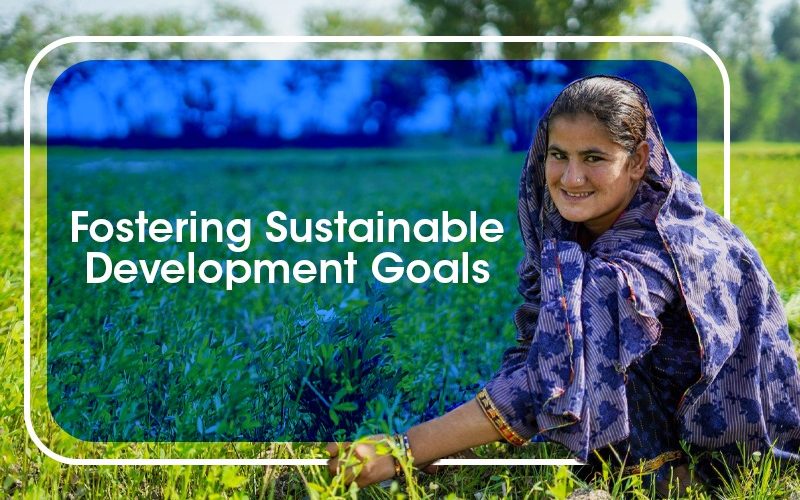Since its establishment in 2007, Indus Hospital and Health Network (IHHN), supported by global chapters, has worked tirelessly to provide free healthcare to all across Pakistan. Through its commitment to free-of-cost, high-quality healthcare services, IHHN proudly aligns itself with the United Nations’ Sustainable Development Goals (SDGs), particularly SDG #3, Good Health and Well-Being.
The SDGs recognise that social, economic, and environmental issues are interconnected and require a comprehensive approach. They are grounded in human rights, ensuring that everyone has access to education, healthcare, water, safe environments, and social justice. They also promote inclusive economic growth, ensuring that everyone benefits from development, regardless of their background or circumstances.
Championing Good Health and Well-Being
In Pakistan, most people cannot get the medical care they need due to a lack of affordability, accessibility, and good quality care. According to research, there is 1 doctor available per 1,300 patients in Pakistan, while 38% of the population lives below the poverty line.
IHHN stepped in to fill this gap, serving thousands of patients every month through established state-of-the-art multidisciplinary tertiary hospitals in the urban centres of Karachi and Lahore. Beyond clinical services, IHHN incorporates psychosocial support, health education, and preventive care into its operations.
Currently, IHHN is serving an estimated 6 million patients a year within its reach. The Network operates 10 multidisciplinary hospitals, 3 rehabilitation centres, 4 regional blood centres, 81 Primary Care Sites, and various public health initiatives. To maintain reliability, IHHN strengthens its system by using community empowerment and participatory strategies.
An Intersectional and Multidimensional Approach
While SDG 3 is at the core of IHHN’s mission, its efforts intersect with several other SDGs:
- SDG 1: No Poverty.
IHHN alleviates the financial burden of healthcare by providing free medical services, preventing families from falling into extreme poverty due to medical expenses. Additionally, free lodging is provided to parents of paediatric oncology patients, transport fares for clubfeet patients, transportation services to physical rehabilitation patients, and food rations to communities under the Community Engagement Centre. - SDG 4: Quality Education.
Through the Indus University of Health Sciences and vocational training programmes, IHHN contributes to building healthcare capacity in Pakistan. These educational efforts ensure a steady pipeline of skilled healthcare professionals. The Indus Hospital Research Centre (IHRC) spearheads clinician-driven research with a focus on public health programmes. In the future, seven colleges will be operational once expansion plans are complete. - SDG 5: Gender Equality.
IHHN’s maternal and neonatal services serve women across the country, from the smallest rural communities to the largest urban cities. The Sheikh Saeed Memorial Campus is dedicated to maternal care, with new mothers coming in for pre-natal check-ups who then give birth in safe and hygienic environments. Education services also feature vocational training dedicated to women. - SDG 9: Industry, Innovation, and Infrastructure.
Innovative healthcare delivery methods, such as container-based clinics, mobile clinics, and boat clinics, allow IHHN to reach remote and underserved areas. These initiatives ensure healthcare access even in regions affected by infrastructural limitations, providing access to immunisation, paediatric care, nutrition, family planning, and mental health services. - Other SDGs that are followed include SDG 6: Clean Water & Sanitation, SDG 7: Affordable and Clean Energy, and SDG 10: Reduced Inequalities.
A Vision for Sustainability
IHHN does more than treat illnesses, it builds a self-sustaining ecosystem that promotes holistic well-being and socio-economic development. Through comprehensive healthcare, innovative programmes, community development, and capacity building, IHHN fosters the achievement of the UN’s Sustainable Development Goals to build a healthier future.
Thus, by supporting this endeavour, we can collectively create a brighter tomorrow for generations to come. This remarkable journey embodies the true spirit of compassion, generosity, and humanity. Together, we can make a lasting difference in countless lives, and ensure the right for all to thrive and reach their full potential.



